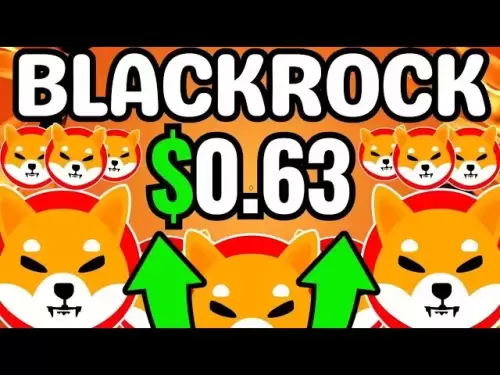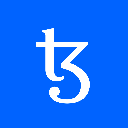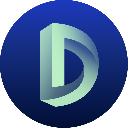-
 Bitcoin
Bitcoin $118000
-0.30% -
 Ethereum
Ethereum $3672
2.06% -
 XRP
XRP $3.433
-1.26% -
 Tether USDt
Tether USDt $1.000
-0.03% -
 BNB
BNB $744.4
1.39% -
 Solana
Solana $178.5
0.43% -
 USDC
USDC $0.9998
-0.01% -
 Dogecoin
Dogecoin $0.2544
1.55% -
 TRON
TRON $0.3197
-1.41% -
 Cardano
Cardano $0.8411
1.25% -
 Hyperliquid
Hyperliquid $45.06
-0.50% -
 Stellar
Stellar $0.4642
-0.67% -
 Sui
Sui $3.872
1.79% -
 Chainlink
Chainlink $18.76
2.98% -
 Hedera
Hedera $0.2686
1.16% -
 Avalanche
Avalanche $24.70
3.92% -
 Bitcoin Cash
Bitcoin Cash $522.9
1.41% -
 Shiba Inu
Shiba Inu $0.00001516
0.13% -
 Litecoin
Litecoin $112.3
9.31% -
 UNUS SED LEO
UNUS SED LEO $8.999
0.24% -
 Toncoin
Toncoin $3.204
0.01% -
 Polkadot
Polkadot $4.418
3.06% -
 Uniswap
Uniswap $10.53
3.16% -
 Monero
Monero $327.6
0.76% -
 Ethena USDe
Ethena USDe $1.001
-0.02% -
 Bitget Token
Bitget Token $4.987
1.52% -
 Pepe
Pepe $0.00001371
2.34% -
 Dai
Dai $1.000
0.00% -
 Aave
Aave $323.3
0.40% -
 Bittensor
Bittensor $416.9
0.79%
Kraken vs Binance
Kraken and Binance differ in regulation, fees, and crypto selection, with Kraken focusing on compliance and security, while Binance emphasizes global access and innovation.
Jul 18, 2025 at 08:50 pm
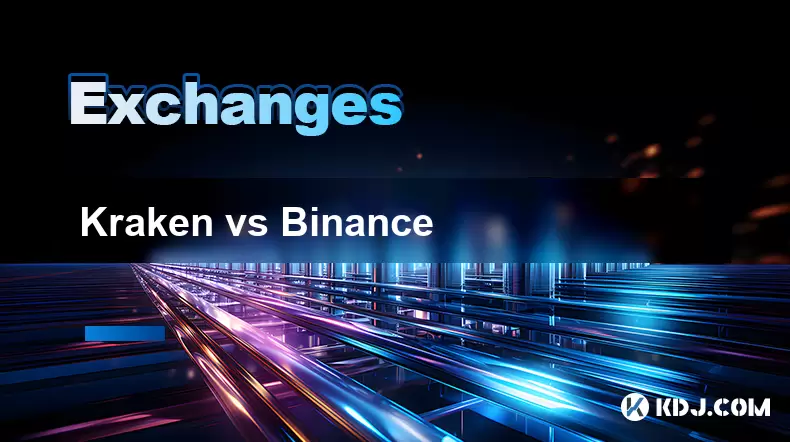
Overview of Kraken and Binance
When comparing Kraken vs Binance, it's essential to understand the foundational differences between these two platforms. Kraken is a U.S.-based cryptocurrency exchange known for its strong regulatory compliance and robust security features. It has been operational since 2011 and is often favored by institutional investors and traders who prioritize transparency and legal adherence. Binance, on the other hand, was launched in 2017 and quickly became the largest cryptocurrency exchange globally by trading volume. Binance is headquartered in Malta but operates in various jurisdictions with localized versions of its platform.
Both exchanges offer a wide range of digital assets for trading, but their target audiences and operational models differ significantly. Kraken emphasizes user protection and regulatory compliance, while Binance focuses on global accessibility and innovation in the crypto space.
User Interface and Experience
The user interface (UI) and user experience (UX) are crucial factors when choosing a cryptocurrency exchange. Kraken offers a clean, intuitive interface that is particularly appealing to beginners and intermediate traders. Its platform is divided into two versions: Kraken Basic, which simplifies the trading process, and Kraken Pro, which provides advanced charting tools and order types for experienced traders.
Binance offers a more complex UI that can be overwhelming for newcomers. However, it provides a highly customizable trading environment with advanced tools such as margin trading, futures contracts, and options trading. The Binance app is also highly rated for its functionality and ease of use on mobile devices.
To navigate these platforms effectively:
- Kraken: Log in to your account, choose between Basic or Pro mode, and use the dashboard to view balances, initiate trades, or access account settings.
- Binance: Log in, access the trading dashboard, and use the top menu to switch between spot trading, margin, futures, or other services.
Supported Cryptocurrencies and Trading Pairs
One of the most important considerations for traders is the number of supported cryptocurrencies and trading pairs available on each platform. Kraken supports over 200 cryptocurrencies, including major coins like Bitcoin (BTC), Ethereum (ETH), and Solana (SOL), as well as stablecoins such as Tether (USDT) and USD Coin (USDC). It primarily offers trading pairs with USD, EUR, and GBP.
Binance offers significantly more options, with over 600 cryptocurrencies listed and thousands of trading pairs. In addition to fiat pairs like USD and EUR, Binance supports crypto-to-crypto trading, stablecoin pairs, and Binance Coin (BNB)-based pairs. Binance also frequently lists new and emerging tokens, making it a preferred choice for traders looking to access niche or early-stage projects.
To check available coins:
- Kraken: Navigate to the "Trade" section and use the search bar to find specific assets.
- Binance: Go to the "Markets" tab and filter by fiat, stablecoin, or specific crypto pairs.
Fees and Transaction Costs
Fee structures vary significantly between Kraken vs Binance, and understanding them is crucial for optimizing trading strategies. Kraken uses a tiered fee system based on trading volume, with fees ranging from 0.00% to 0.26% for makers and 0.00% to 0.40% for takers. Fiat deposits and withdrawals may incur additional fees depending on the method used.
Binance also employs a tiered fee model, but it offers discounts for users who hold BNB. Standard fees are 0.1% for makers and 0.1% for takers, but these can be reduced with higher trading volumes or BNB holdings. Binance also charges network fees for blockchain transactions, which vary depending on network congestion.
To calculate potential costs:
- Kraken: Use the fee schedule on the official website or the fee calculator in your account settings.
- Binance: Check the "Fees" section under your profile or use the built-in fee estimator when placing trades.
Security and Regulatory Compliance
Security is a critical concern for any cryptocurrency exchange, and Kraken vs Binance have different approaches in this area. Kraken is known for its high-security standards and has never been hacked. It stores the majority of user funds in cold storage and complies with U.S. financial regulations, including Know Your Customer (KYC) and Anti-Money Laundering (AML) requirements.
Binance has faced scrutiny over regulatory compliance in several jurisdictions. While it has taken steps to improve compliance, including the launch of Binance.US for American users, it has faced legal challenges in countries like the UK and Japan. Binance employs two-factor authentication (2FA), anti-phishing measures, and cold storage solutions, but users should remain vigilant due to past incidents involving third-party breaches.
To enhance account security:
- Enable two-factor authentication (2FA) using apps like Google Authenticator or Authy.
- Set up email and SMS notifications for login and transaction activities.
- Use strong, unique passwords and consider using a password manager.
Customer Support and Accessibility
Customer support can be a deciding factor when issues arise during trading or account management. Kraken offers 24/7 support through live chat, email, and an extensive FAQ knowledge base. Response times are generally quick, and Kraken provides support in multiple languages.
Binance offers a ticketing system, live chat, and a help center with guides and tutorials. However, response times can vary, especially during high-traffic periods. Binance also has a community support forum and social media channels where users can seek assistance.
To contact support:
- Kraken: Click on the "Support" tab after logging in, then choose "Live Chat" or "Submit a Request."
- Binance: Go to the "Help Center," select your issue, or submit a ticket via the "Support" section in your account.
Frequently Asked Questions
Q: Can I trade stocks on Kraken or Binance?
A: Neither Kraken nor Binance currently offers traditional stock trading. However, both platforms support tokenized stocks, which are crypto-based derivatives that mirror the price of real-world stocks like Tesla or Apple.
Q: Which exchange has lower withdrawal fees?
A: Withdrawal fees depend on the cryptocurrency and network used. Kraken generally has predictable fees listed per asset, while Binance fees can fluctuate based on network congestion. Always check the current fee schedule before initiating a withdrawal.
Q: Are there any restrictions for U.S. users on Binance?
A: Yes, U.S. users must use Binance.US, which has a separate interface, different trading pairs, and stricter compliance requirements. Binance.US does not offer certain products like futures or staking for all states.
Q: Can I earn interest on my crypto with Kraken or Binance?
A: Both exchanges offer staking and savings products. Kraken Staking allows users to earn rewards by locking up supported cryptocurrencies. Binance Earn offers a broader range of products, including flexible savings, fixed deposits, and liquidity farming options.
Disclaimer:info@kdj.com
The information provided is not trading advice. kdj.com does not assume any responsibility for any investments made based on the information provided in this article. Cryptocurrencies are highly volatile and it is highly recommended that you invest with caution after thorough research!
If you believe that the content used on this website infringes your copyright, please contact us immediately (info@kdj.com) and we will delete it promptly.
- Crypto, Altcoins, and Genius Clarity: Decoding the 2025 Bull Run
- 2025-07-20 10:50:12
- DOGE's Double Bottom: Is a $0.42 Target Really in Sight?
- 2025-07-20 10:30:12
- Cryptos Surge: Decoding Market Gains & Top Performing Assets
- 2025-07-20 10:30:12
- Shiba Inu, Market Cap, and Troller Cat: A Meme Coin Mashup for the Ages
- 2025-07-20 10:50:12
- Bitcoin Wallets, Profitability, and BTC Price: What's the Hype?
- 2025-07-20 10:55:12
- Troller Cat's Stage 14: Balloon Boy Hoax, Contributions Soar!
- 2025-07-20 10:55:12
Related knowledge
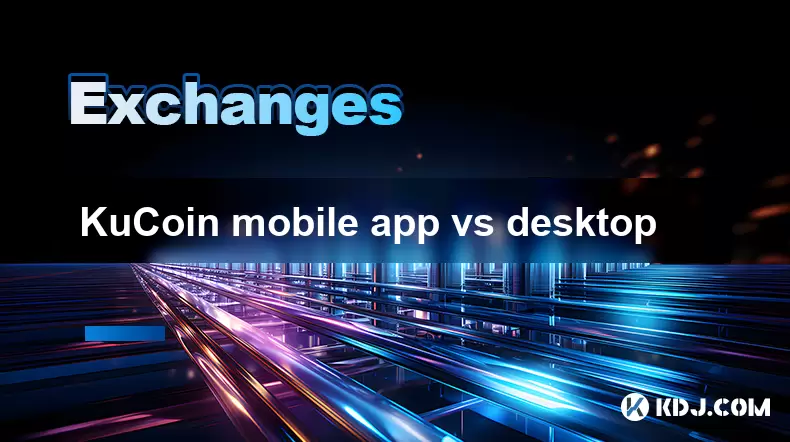
KuCoin mobile app vs desktop
Jul 19,2025 at 08:35am
Overview of KuCoin Mobile App and Desktop PlatformThe KuCoin ecosystem offers both a mobile app and a desktop platform, each designed to cater to diff...
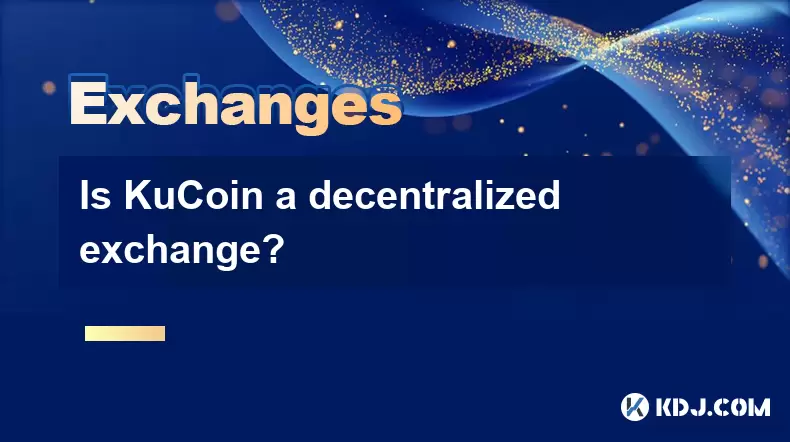
Is KuCoin a decentralized exchange?
Jul 18,2025 at 03:15pm
Understanding Decentralized Exchanges (DEXs)To determine whether KuCoin is a decentralized exchange, it's essential to first understand what defines a...
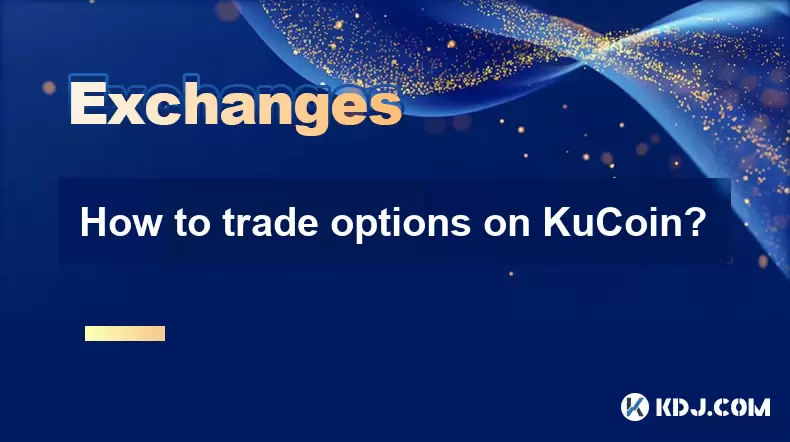
How to trade options on KuCoin?
Jul 19,2025 at 03:42am
Understanding Options Trading on KuCoinOptions trading on KuCoin allows users to speculate on the future price movements of cryptocurrencies without o...
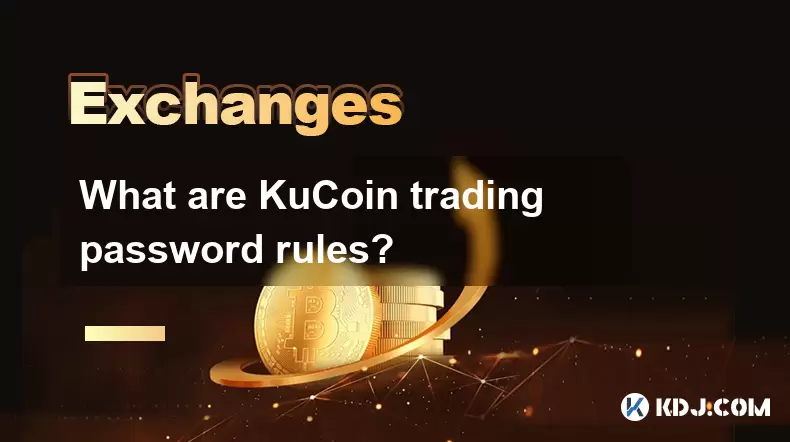
What are KuCoin trading password rules?
Jul 20,2025 at 07:56am
Understanding the Purpose of a Trading Password on KuCoinOn KuCoin, a trading password serves as an additional layer of security beyond the standard l...

Who is the CEO of KuCoin?
Jul 20,2025 at 09:35am
Background of KuCoinKuCoin is one of the largest cryptocurrency exchanges globally, known for its diverse range of trading pairs and user-friendly int...
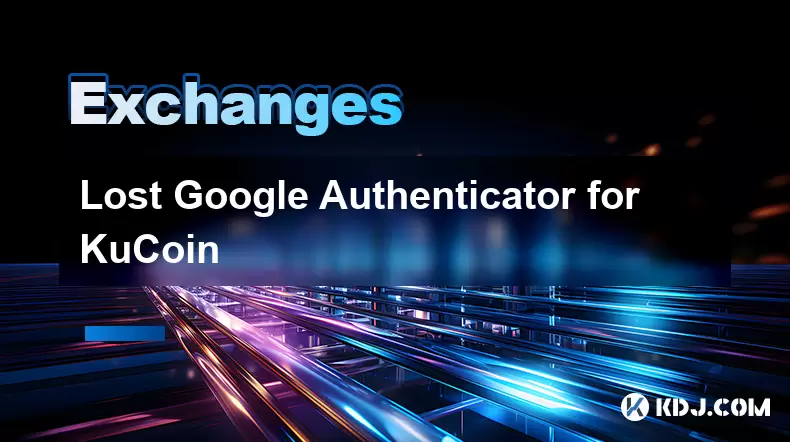
Lost Google Authenticator for KuCoin
Jul 19,2025 at 02:35am
Understanding the Importance of Google Authenticator in KuCoin SecurityGoogle Authenticator is a critical tool used by KuCoin users to enable two-fact...

KuCoin mobile app vs desktop
Jul 19,2025 at 08:35am
Overview of KuCoin Mobile App and Desktop PlatformThe KuCoin ecosystem offers both a mobile app and a desktop platform, each designed to cater to diff...

Is KuCoin a decentralized exchange?
Jul 18,2025 at 03:15pm
Understanding Decentralized Exchanges (DEXs)To determine whether KuCoin is a decentralized exchange, it's essential to first understand what defines a...

How to trade options on KuCoin?
Jul 19,2025 at 03:42am
Understanding Options Trading on KuCoinOptions trading on KuCoin allows users to speculate on the future price movements of cryptocurrencies without o...

What are KuCoin trading password rules?
Jul 20,2025 at 07:56am
Understanding the Purpose of a Trading Password on KuCoinOn KuCoin, a trading password serves as an additional layer of security beyond the standard l...

Who is the CEO of KuCoin?
Jul 20,2025 at 09:35am
Background of KuCoinKuCoin is one of the largest cryptocurrency exchanges globally, known for its diverse range of trading pairs and user-friendly int...

Lost Google Authenticator for KuCoin
Jul 19,2025 at 02:35am
Understanding the Importance of Google Authenticator in KuCoin SecurityGoogle Authenticator is a critical tool used by KuCoin users to enable two-fact...
See all articles

























